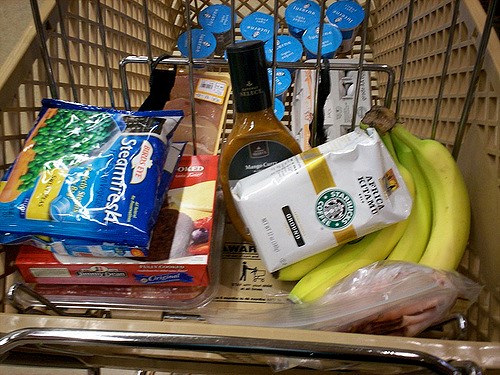Lately my trips to buy food, whether it’s a restaurant or local grocery store, leave me dizzy and worried about my pennies. I used to feel good purchasing items labelled eco-friendly, non GMO, locally sourced, sustainably farmed, or fish friendly.
It didn’t take much digging to unearth growing global concern, however. That warm, fuzzy feeling is exactly what companies target. Aptly called the Wild West of ecolabelling, international researchers are worried about the impact of mislabelling on the environment and many are working toward stricter regulations.
Canadian consumers rely on vendors and retailers labelling for information. Sitting in a restaurant with a Buy Local sticker on the front door, I’m proud of the Pemberton produce I just bought from Nesters Market.
One Squamish farmer told me the Canadian Food Inspection Agency requirements for items “locally-sourced” is grown up to 200 kilometres away, meaning produce can come from Washington.
Despite our best intentions, experts say Canada’s going to rely more on agricultural imports. We’ve all bought fruits out of season. Personally, I love strawberries with my pancakes. Even in January.
Then there’s seafood.
A 2016 report from Oceana, an international conservation organization, found over 41 per cent of seafood samples tested in Canada were mislabelled. “People sure love to spend on that stuff,” one restaurant owner and former boss told me years ago about using the OceanWise logo without accreditation.
According to a recent article by Raina Delisle, the OceanWise program run by the Vancouver Aquarium, which boasts the only existing made-in-Canada seafood ecolabel, does not account for where seafood is packaged or processed and the emissions in doing so, nor does it have strict regulations for these retailers who falsify accreditation. Delisle also pointed out flaws within regulatory boards who were granting accreditation for sustainable fish practices before companies were up to bar.
OceanWise has no traceability requirements, which refers to data companies have about what’s come in the door and left, so there’s no guarantee about that fish you’re eating, Delisle explains.
Both the United States and EU have moved toward traceability rules for fisheries by creating mandatory product labels that include scientific terms for species, where it was caught and how it was harvested.
I’m left rethinking costly sustainable decisions: It stings more knowing I don’t have the facts.
Consumers need to lobby for stricter government regulations, start supporting sustainable agriculture in high-production regions globally like Mexico, because imports continue to rise, and buy directly from local farmers.
There’s a chance you’re paying a lot more for a label than what’s underneath.



